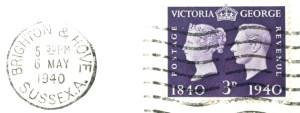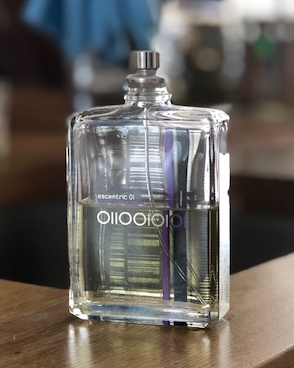You remember back BC when we couldn’t envisage the future and we made plans ….….. that this year included seeing Celina’s family in Estoril over Easter. As we booked the TAP Portugal flights we thought even further ahead and also booked flights to cover the month of August in the sun. Little did we know the whole world was about to be turned on its head, or arse depending on your view.
Our Easter flights were cancelled and we have a voucher for future use with TAP Portugal. As we lived further into the lockdown period, we prayed we would still be able to go to Portugal on 28th July. At some point Celina was checking the airline’s flights from Brazil and in a ‘while I am on the website’ sort of moment, checked our July flights were still there. Nothing showed! We rang the airline in Portugal; I won’t bore you will the length of the call and the number of times we were put on hold etc etc as that, sadly, is an all too familiar experience, but eventually we talked to Gustavo.
“We are not flying out of Gatwick in July so had to cancel your flight.”
(Unspoken, as we wanted to keep Gustavo sweet and didn’t want him to hang up , …… “But why didn’t you tell us and explore some of our options?”)
He rebooked us on a flight from London Heathrow for the same day. And so it transpired that on Tuesday we were due to fly to Lisbon. Two days before, the Prime Minister surprised the whole country and those 600, 000 tourists already there by adding Spain to the list of countries from which returnees would have to isolate for 14 days. Difficult if you are only allowed to take 14 days holiday at one go.
We had packed; we had a chum coming to stay in our apartment; we had the taxi booked to take us to Terminal 2. Still ….. Monday night was spent tossing and turning ….. should we or shouldn’t we. ……. imagining this and that …. and some of the other? A little bell was reminding me that my travel insurance probably would be invalid as the UK’s Foreign Office had advised against non-essential travel to Portugal. Maybe that health agreement whereby UK NHS registered individuals could access Portugal’s health care system would be honoured? Was it worth the risk? I should add that it was our intention to simply spend five weeks in Celina’s mother and cousin’s apartment, which has its own pool, not join a group of fifty somethings wanting to relive their youth in the local Cascais nightclubs or boogieing the night away at a BBQ on some distant beach. And anyway Portugal had been remarkably successful in dealing with Covid 19, far far better than the UK, so it wasn’t exactly jumping out of the frying pan into the fire or indeed vica versa. The doubts rumbled around over breakfast!
Sam picked us up and drove us to Heathrow. We hadn’t spent so long with someone in a car for a while and as we talked, I realised something was different. When you meet someone of the first time we automatically look at their eyes; if we find the eyes friendly our own eyes drop down to the mouth – more information gathering at a sub-conscious level. Our Covid 19 facial masks hide a real contributor to the conversation, the visual inputs now limited to the other’s eyes and eyebrows. You have to work harder at a conscious level to convey the intended message. Some people naturally have smiley eyes; for most of us it’s something we are going to have to work on if the wearing of masks becomes a way of life and not just for those attending a Venetian Ball.

Apparently there is a shop in Brighton only selling facial masks!
At Terminal 2 there are one or two shops open for the few passengers in evidence; everyone is socially-distancing, wearing their personal choice of mask, and looking anxious. We board and taxi to our take-off position. No aircraft are landing and there is no queue of planes on the tarmac, neither in front nor behind us. Normally I am always like a child, fascinated by the long line of landing lights fading up into the sky as the aircraft make their decent towards the apron. Not today! We take off slightly early and fly out over the Isle of Wight, arriving over France on the western side of the Cherbourg Peninsula, and on over the Channel Islands of Sark and Jersey. We’re over Ushant, situated on that North West corner of France and I am reminded of our ferry trip from Portsmouth to Santander on the northern coast of Spain in 2018, when their course takes them through this rocky stretch of water.
My reveries are interrupted by a paper form that’s stuck rather unceremoniously under my nose. We borrow a Biro from the stewardess, for the form wants the details of where we are staying, our mobile numbers, full names, sex, shoe size (no! not really!) and our home address. I have read that some Covid-vaccine deniers think a microchip might be slipped under your skin as you have the little prick of the vaccine needle. This will give Big Brother the ability to access details of your life. (Some people actually believe this rubbish!) This form was enough ….. and I was filling it out very readily!

The mask is hot to wear for a long time and I reach up to angle the ‘fresh’ air nozzle onto my face. The distance between the rows of seats is adjustable depending on the carrier, the position of the nozzles not. The best I can achieve is for the jet of cool air to hit – just behind my shoulder.

Flying over Lisbon before doing a 360° turn to line up the approach
We land safely at Lisbon. There’s always one individual who has to be the first to stand as soon as the aircraft comes to a stop, as if they will gain a few seconds and lemming-like the rest of the passengers follow, only to stand bunched in the aisle until row 3 has cleared. Social distancing? Nah? At least they restrict passenger numbers on the coach that took us to the terminal building.

The Sintra hills in the distance, the Monument to the Discoveries in the foreground on the shore.
On the way up the escalator to ‘Passport Control’ I realise this is my first European flight since the UK left the Union at the end of last year; we are currently in a ‘transition period’. So ‘EU Passports’ or ‘Non-EU Passports’? My burgundy-coloured EU passport is still valid so we try that line. We are through without a hitch. Bags collected and on our way towards Estoril within 40 minutes of landing – without any trepidation!
Richard 30th July 2020












